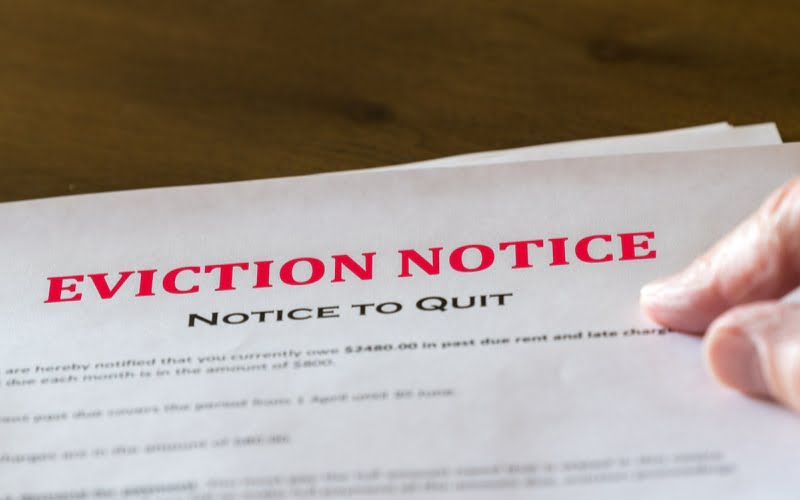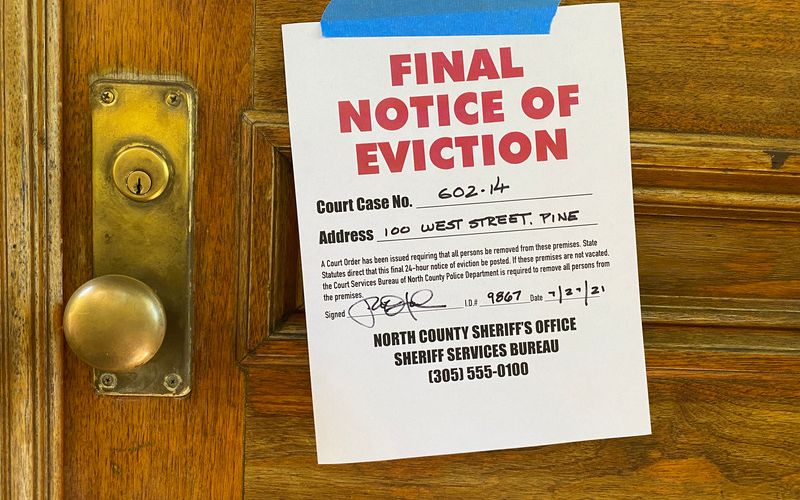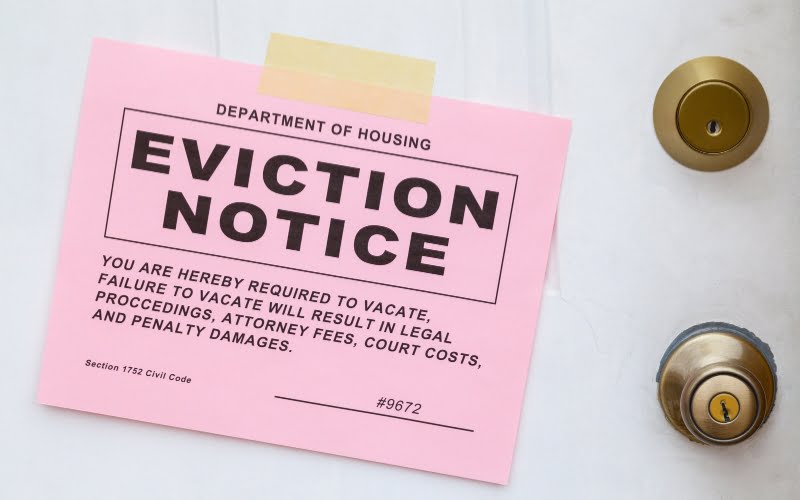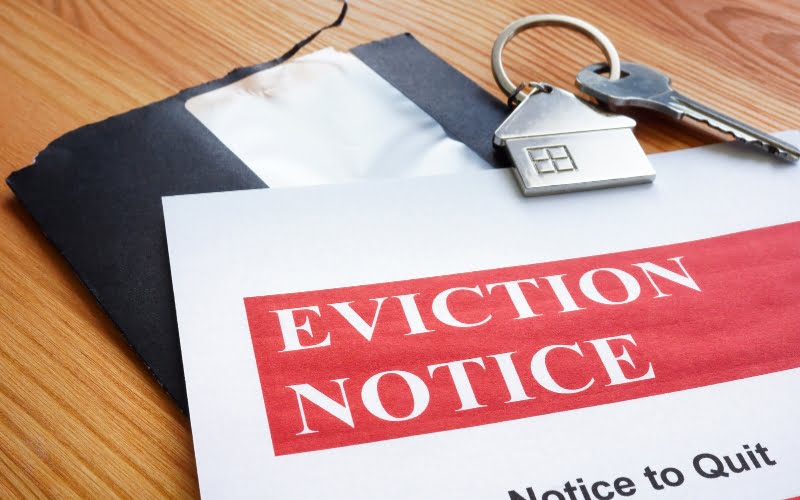Last Updated on March 18, 2024 by Kelvin Nielsen
Under Arizona Landlord-Tenant Act, a landlord may be able to evict anyone who is not a tenant and who won’t leave. That person can be a family member, a friend, or a boyfriend/girlfriend.
Now, before we get into the Arizona eviction laws without a lease, it’s important to understand who a tenant is under state law.
Under the Arizona Landlord-Tenant Act, a tenancy between a landlord and a tenant can be established in either of the following three ways.
- If an oral agreement already exists.
- If there is a written rental agreement.
- If the tenant has paid rent in exchange to stay at the property.
If any of these things has occurred, then both parties will automatically obtain certain legal rights and responsibilities. But importantly, your Arizona tenant will obtain the right to continue living on your property until you have taken the proper eviction process to remove them.
With that in mind, the following is everything you need to know about Arizona eviction laws without a lease.
Arizona Eviction Laws without a Lease
The following is a step-by-step process that you must follow to successfully evict the tenant from your property.
Step #1: Serve the tenant with a proper eviction notice.
To begin the eviction process against a family member with no lease in Arizona, you must serve them a 30-Day Notice to Vacate. The same notice also applies to tenants on a month-to-month lease whom you no longer want to continue renting to.
The notice gives the tenant a maximum of 30 calendar days to move out.
If the tenant doesn’t move out within the 30 days period, you can go to court and file an eviction lawsuit.
Step #2: File a complaint in a Justice Court.
After the 30 days are over, you can escalate the matter further by filing the lawsuit in a Justice Court.
You’ll need to submit two documents for the notarization to be successful: a Complaint Form and a Summons Form.
Step #3: The tenant is served.
After your lawsuit has been notarized by the court’s clerk, copies of the Summons and Complaint will be issued. These will then need to be served to the tenant using a process server.
The process server, typically a sheriff or a constable, will need to serve the documents in a particular manner. The following are the options.
- Serve a copy in person.
- Leave a copy with someone who is of suitable age and lives together with the tenant.
- Deliver a copy to the tenant’s attorney, or any other agent authorized to act on their behalf.
You can generally expect the court hearing to be held no later than 5 days after the filing of the complaint.
Step #4: The tenant files an answer.
Arizona tenants have a right to respond to their landlord’s allegations. The tenant must submit the answer on or before the initial appearance.
The family member can choose to fight or admit the landlord’s allegations are true. If the tenant chooses to fight their eviction, the following are some of the defenses they can give.
- The eviction notice you served them had critical errors. For instance, it failed to mention the effective date of eviction.
- The eviction notice was served irregularly.
- There was a lease between you and the tenant.
- You accepted a rent payment.
Step #5: Hearing is held.
Once the complaint is successfully filed, you can expect the hearing to take place within 5 days. Both parties have the option to make the initial appearance via phone or video conference.
The judge can rule in your favor if any of the following happens.
- There is no lease between you and the tenant.
- The tenant fails to show up.
- The tenant fails to convince the court by not having a valid defense.
- The judgment falls in your favor after all parties have submitted their case.
If the judgment is in your favor, the court will issue you with a Writ of Restitution. This will give the tenant 5 calendar days to move out after the judgment is entered. If they refuse to leave, the sheriff will have to evict them forcefully. The only exception here is if the tenant files an appeal which will delay their eviction.
Frequently Asked Questions (FAQs): Arizona Eviction Laws Without a Lease
Q: Is it easy to evict a tenant in Arizona?
A: All evictions, except when removing a guest, follow the same process.
- Serve an eviction notice.
- File a complaint (if the matter remains unresolved).
- Allow the tenant to respond (if they choose to).
- Attend the court hearing.
- Obtain the writ of restitution (court order) if the judgment is entered in your favor.
You must not try to evict the tenant in any other way. Such as, retaliating against the tenant to force them to abandon the property, discriminating against them on the basis of a protected class, or using self-help methods to force them out.
Q: How long does an eviction stay in Arizona?
A: A history of eviction can last on the tenant’s record for up to 7 years.
Q: How much notice does a landlord have to give a tenant to move out in Arizona?
A: The amount of notice to give the tenant will depend on the rent payment frequency. If the tenant is paying rent on a week-to-week basis, you must serve them a 10-day notice to leave. If the tenant is paying rent on a month-to-month basis, you must serve them a 30-day notice to leave.
There is no statutory requirement for tenants paying rent on a quarter-to-quarter- or year-to-year basis.
In a fixed-term lease, however, you must wait until the lease ends for the tenant to vacate the property.
Q: What is an illegal eviction in Arizona?
A: The only way to evict a tenant in Arizona is through a court order (Writ of Restitution). Arizona law (ARS § 33-1367) prohibits retaliatory evictions, discriminatory evictions, and the use of self-help methods to remove a tenant.
Here is a guide on wrongful evictions in Arizona.
Q: How do you remove a family member in Arizona?
A: Here is a comprehensive guide on how to evict a family member with no lease in Arizona.
Conclusion
There you have it – Arizona eviction laws without a lease. You must be careful not to make mistakes in the process lest it fails, delays the removal of the tenant, or even causes you legal problems.
Disclosure: The content herein isn’t a substitute for advice from a professional attorney. It’s only meant to serve educational purposes. If you have a specific question, kindly seek expert attorney services.
Source: Arizona Landlord and Tenant Act, https://azlawhelp.org/articles_info.cfm?mc=3&sc=24&articleid=25, https://www.azag.gov/outreach/publications/tenants-rights-and-responsibilities-handbook-community-legal-services,

Hi, I’m Kelvin Nielsen, an experienced landlord and accomplished real estate lawyer. My focus is on answering your questions about renting in the hopes of making your life as a renter or a landlord a bit easier.







